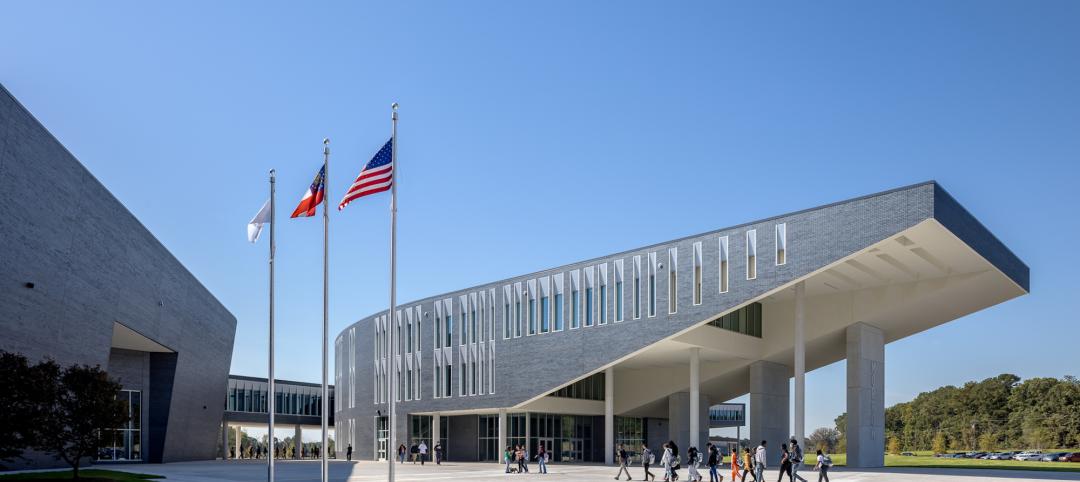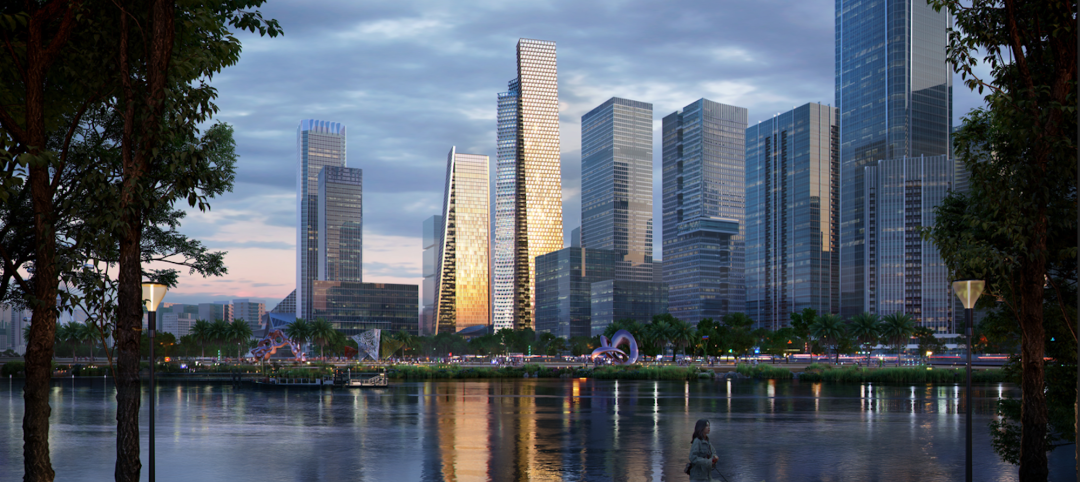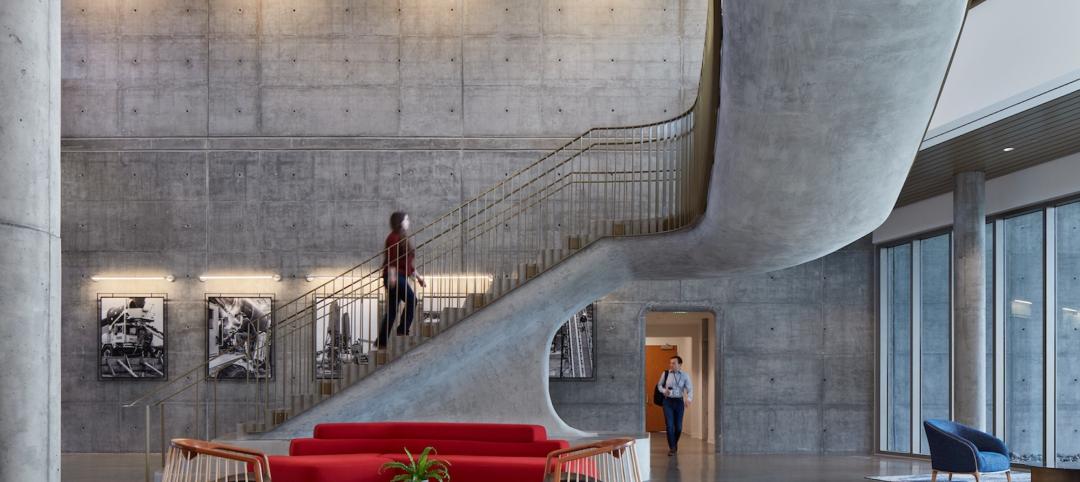A new product from PocketCake, called VRSCA (for Virtual Reality Simulation Converter Assembly), is three times more powerful than the average high-performance computer and allows for up to eight people to experience a virtual reality simulation at the same time.
VR enables users to experience immersive, computer-generated 3D environments through the use of specialized headsets and state of the art modeling software. Since the price of VR headsets and software has dropped significantly in recent years, developers are limited only by their imaginations and processing efficiency.
PocketCake is releasing a new product, the VRSCA (for Virtual Reality Simulation Converter Assembly), to remove the limits on processing power and setting developers' imaginations free.
Most computers are not equipped to handle the massive volume of data contained in a typical VR simulation file. A high performance laptop computer can process the data necessary to simulate a 25,000 square-foot building at a frequency of 25 frames per second.
By contrast, VRSCA processes the same model at 80 frames per second. A 100,000-square-foot model with defined interior and dynamic lighting would crash the average high-powered computer. VRSCA, on the other hand, runs the simulation with ease: no lag; no overheating.
VRSCA allows for up to eight people, wearing headsets such as the Oculus Rift, to experience a virtual reality simulation in the same room at the same time.
Virtual reality simulations for multiple viewers
VRSCA is available in four models: a single viewer, a dual viewer, a 4-person viewer and an 8-person viewer. The single, dual and 4-person viewers are portable. Each VRSCA is capable of hosting as many as 58 viewers remotely. This means simulations can be viewed simultaneously by 58 viewers in different locations.
VRSCA can be equipped with options such as a controller that allows for easy navigation through a simulation and the ability to change spawn points and control lighting.
Stanford graduate and hardware engineering manager for QuEST Rail, Matt Rogge PhD, EE is overseeing design and production of VRSCA. Dr. Rogge's knowledge and experience in railroad control electronics and digital systems provides a key element to the VRSCA project's success.
For more information, visit: www.pocketcake.com/vr.html.
Related Stories
K-12 Schools | Feb 18, 2023
Atlanta suburb opens $85 million serpentine-shaped high school designed by Perkins&Will
In Ellenwood, Ga., a southeast suburb of Atlanta, Perkins and Will has partnered with Clayton County Public Schools and MEJA Construction to create a $85 million secondary school. Morrow High School, which opened in fall 2022, serves more than 2,200 students in Clayton County, a community with students from over 30 countries.
Museums | Feb 17, 2023
First Americans Museum uses design metaphors of natural elements to honor native worldview
First Americans Museum (FAM) in Oklahoma City honors the 39 tribes in Oklahoma today, reflecting their history through design metaphors of nature’s elements of earth, wind, water, and fire. The design concept includes multiple circles suggested by arcs, reflecting the native tradition of a circular worldview that encompasses the cycle of life, the seasons, and the rotation of the earth.
Architects | Feb 17, 2023
Architect of the Capitol fired by President Biden after strong bipartisan criticism
Architect of the Capitol J. Brett Blanton was let go this week following alleged abuse of authority, misuse of government property, and wasted taxpayer money.
High-rise Construction | Feb 15, 2023
Bjarke Ingels' 'leaning towers' concept wins Qianhai Prisma Towers design competition
A pair of sloped high-rises—a 300-meter residential tower and a 250-meter office tower—highlight the Qianhai Prisma Towers development in Qianhai, Shenzhen, China. BIG recently won the design competition for the project.
Senior Living Design | Feb 15, 2023
Passive House affordable senior housing project opens in Boston
Work on Phase Three C of The Anne M. Lynch Homes at Old Colony, a 55-apartment midrise building in Boston that stands out for its use of Passive House design principles, was recently completed. Designed by The Architectural Team (TAT), the four-story structure was informed throughout by Passive House principles and standards.
Designers | Feb 13, 2023
Hoffmann Architects + Engineers Establishes Diversity Advancement Scholarship Fund
Hoffmann Architects + Engineers, a design firm specializing in the rehabilitation of building exteriors, contributed $25,000 to fund the Hoffmann Diversity Advancement Scholarship, administered through the Connecticut Architecture Foundation. The fund provides scholarships for students from underrepresented racial or ethnic groups who are seeking degrees in architecture or engineering.
Office Buildings | Feb 12, 2023
Smyrna Ready Mix’s new office HQ mimics the patterns in the company’s onsite stone quarry
Designed by EOA Architects to showcase various concrete processes and applications, Smyrna Ready Mix's new office headquarters features vertical layering that mimics the patterns in the company’s stone quarry, located on the opposite end of the campus site. The building’s glass and concrete bands are meant to mirror the quarry’s natural contours and striations.
Multifamily Housing | Feb 11, 2023
8 Gold and Platinum multifamily projects from the NAHB's BALA Awards
This year's top BALA multifamily winners showcase leading design trends, judged by eight industry professionals from across the country.
Multifamily Housing | Feb 10, 2023
Dallas to get a 19-story, 351-unit residential high-rise
In Dallas, work has begun on a new multifamily high-rise called The Oliver. The 19-story, 351-unit apartment building will be located within The Central, a 27-acre mixed-use development near the Knox/Henderson neighborhood north of downtown Dallas.
Sustainability | Feb 9, 2023
New guide for planning, designing, and operating onsite water reuse systems
The Pacific Institute, a global nonpartisan water think tank, has released guidance for developers to plan, design, and operate onsite water reuse systems. The Guide for Developing Onsite Water Systems to Support Regional Water Resilience advances circular, localized approaches to managing water that reduce a site’s water footprint, improve its resilience to water shortage or other disruptions, and provide benefits for local communities and regional water systems.

















